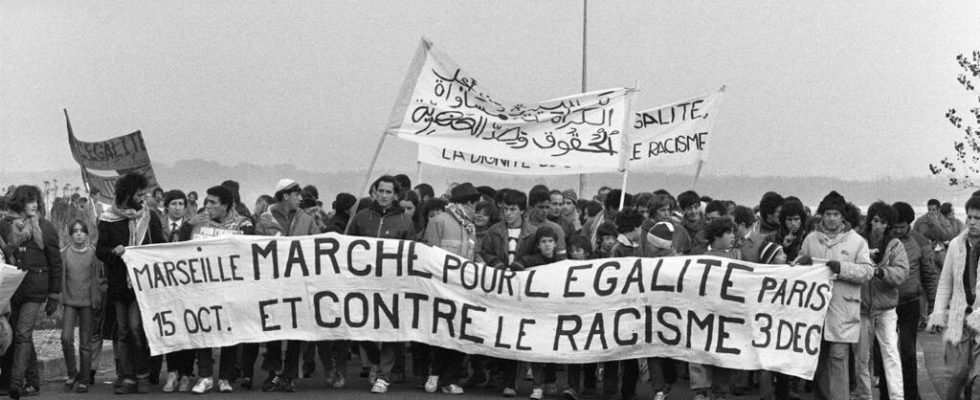In France, events will multiply to mark the 40th anniversary of the march for equality, nicknamed March des Beurs. On October 15, 1983, a few dozen young people of immigrant origin left Marseille to reach Paris on foot, to meet the French and denounce racism. This initiative echoes French news, always punctuated by tensions in working-class neighborhoods. Two actors of the time, one of the initiators of the march and a walker, testify for RFI.
40 years ago, Christian Delorme was called the priest of Minguettes, named after this immense concrete city near Lyon, the sad cradle of the expression “ urban violence “. At the time, clashes between young people and the police increased to the point of one blunder too many. An association activist of Algerian origin takes a bullet at point blank range. The priest visits him in the hospital. This is where the idea of walking was born.
“ The question was how can we make our voice heard? Without adding violence to violence, without the violence through which we seek to express ourselves turning into repression against ourselves. »
Farid L’Haoua is one of the early walkers. He was then 25 years old. “ So I’m going to Valencia. And there, my comrades asked me to stay and above all to lend a hand to ensure that things went well. There are very few historians who have been interested in this history of the march, itself inspired by the marches of Gandhi, the marches of Martin Luther King. And above all, given the social and political context, we said to ourselves that perhaps we needed to be a little more visible during these times. There is a concordance all the same, a rise in phenomenal violence. »
A mobilization still relevant today
Alluding in particular to the riots which engulfed France at the end of June, after the death of young Nahel, killed at point blank range during a police check. The two men decided to actively participate in the commemorations of the 40th anniversary of the march, in the face of a history that seems to be stuttering.
“ A mixture of sadness and anger. Because for more than 40 years now, a certain number of us have been saying that there is a real problem in this French society, of relations between the police institution and young people who are called sensitive neighborhoods or from the diversity. What I am sure of is that the French police have not recovered from the history of the Algerian War. It was the circumstances. She was used to controlling North African faces. We went from controlling young people from the neighborhoods, who were starting to become restless at the end of the 1970s and coming from this post-colonial history, to North Africans likely to be a supporter of terrorism.. »
Would a new march be possible? The two men don’t believe it. For Farid L’Haoua, this space of expression is now impossible. “ The yellow vest movements were still phenomenally violent. When I see all the movements around retirements, nothing has happened. What I hope is that this march will continue to be a dream before us and a dream that we will want to nourish and that today, there is still reason to fight. »
The two friends met this Saturday in Marseille where the start of the march will be commemorated. There they will find old comrades and all those who still want to fight.
